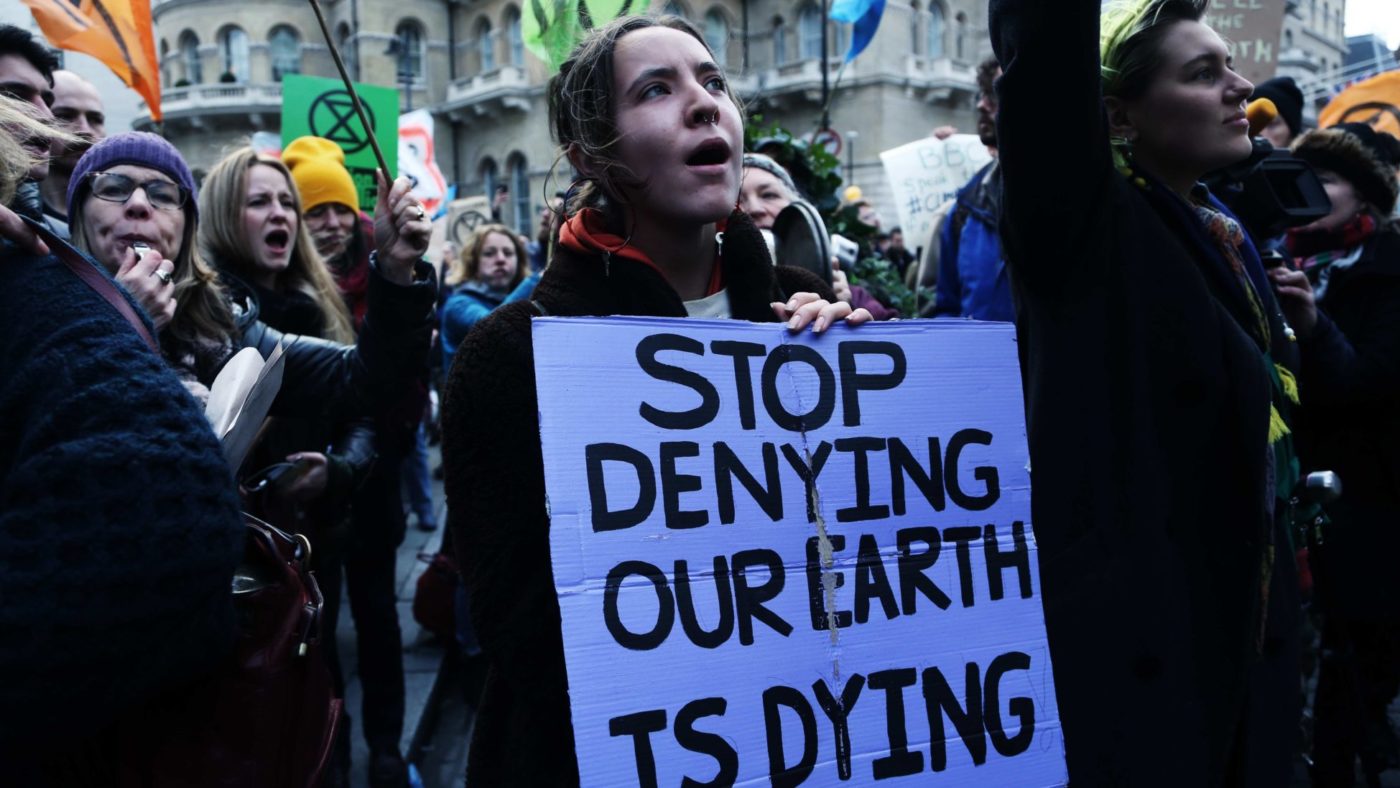Triffids, zombies, return of the dinosaurs, more champagne than you can shake a bottle at – hold that last thought – the dystopian novel is alive and well and ready to embrace the brave new world of climate change.
Doing the pre-publication rounds in the UK is John Lanchester with his new climate boiler, The Wall. Six pages have appeared in the London Sunday Times magazine and they tell of a future when the world is broken by terrifying rises in global temperature.
Good for a yarn, but Mr Lanchester actually seems to believe that the world is going to climate hell in a handcart. To avoid a world of 4C warming, he notes that we are going to have to both ration and invent our way out of it. “Morally, we have no choice”. Well good luck on that one, given the recent energy riots in France and the current state of battery technology.
To Mr Lanchester, thinking about climate change requires at least “a willingness to take scientific evidence on trust”. And if we can’t do that he suggests we need a “truth serum”. Worryingly this does not appear to be part of the fictional book – he goes on to explain: “A medicine that forces us to listen to the truth when someone tells it to us”.
No doubt if the medicine fails there is no alternative but Room 101, although your correspondent may be confusing novels and indeed real life at this point.
The Lanchester book cuts and pastes all the extreme weather scares of the last few years and couples it with constant appeals to authority that many scientists would find laughable. The scientists “speak a language of probabilities and estimates and caution”. So in addition he suggests that it is left up ….”to journalists, influencers and activists – to conjure up the world that these reports tell us we are heading towards”. Once you let yourself begin to imagine that, he continues, it leads you to the world of Sir David Attenborough – “the collapse of our civilisations and the extinction of much of the natural world”.
Well before we get there let’s have a drink. Over in the Champagne region of France they are picking the grapes a little early in August notes the author driving around on a family holiday. Of course, grapes in northern France have benefited recently from a little gentle warming and a dash of extra atmospheric CO2, sometimes known as plant food. And champagne – over-priced fizzy chardonnay with hundreds of years of great branding – is doing particularly well. As they say in the locale – the only poor grower is one who has to drive his own Mercedes.
Inexplicably missing from the book is a note that the earliest start of the champagne harvest was August 20, back in 1822. And in the region they still talk about the sensational vintage of 1914, given heroic status since it was picked early to the sound of the approaching German guns.
There are many other routine cut and paste scares in this book. The suggestion that tropical storms will become bigger and more destructive fails to note the role of colder air in generating energy, while the recent El Niño that caused natural coral bleaching in the Great Barrier Reef is renamed a “marine heatwave”.
Of course the BBC and the Guardian will lap all this stuff up, since their own fact/fiction coverage closely mirrors much of Lanchester’s writing. But the world is moving on from lessons handed down from the Al Gore Academy of Science. For years Andrew Revkin plied the activist climate beat at the New York Times. But he wrote a essay recently in which he noted that scientific literacy abounded at both ends of the spectrum of beliefs on global warming. “So I tried a little experiment: I sifted for Nobel laureates in physics who’d expressed strong views on global warming. It turned out there was one to suit just about anyone’s argument, from deep worry to total unconcern”.
More truth serum anyone? I think I’ll stick to the Bolly.


